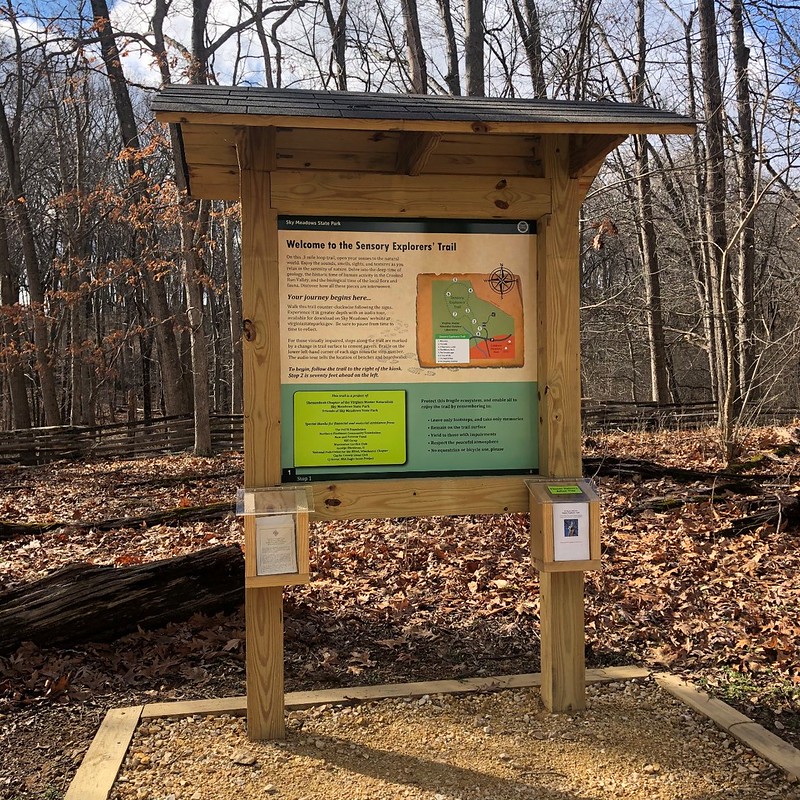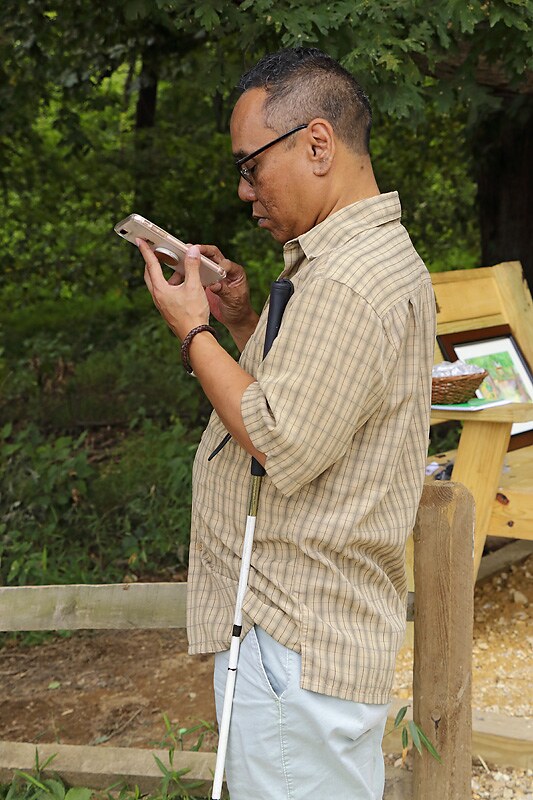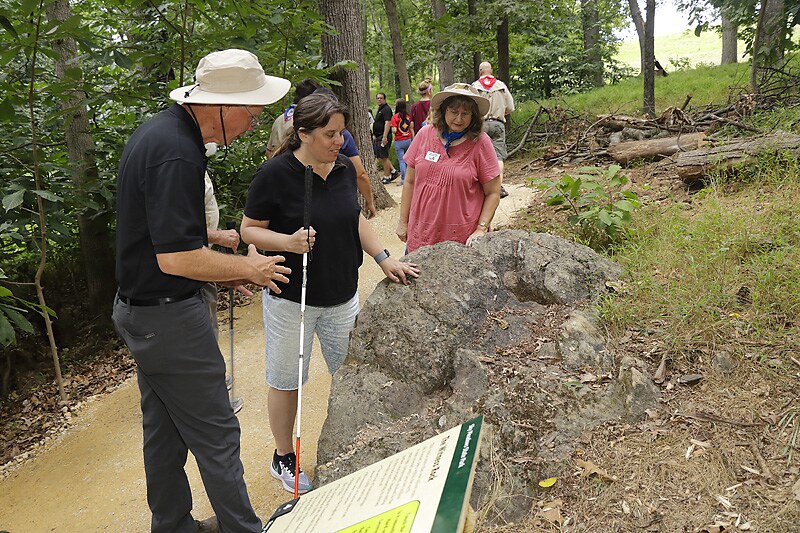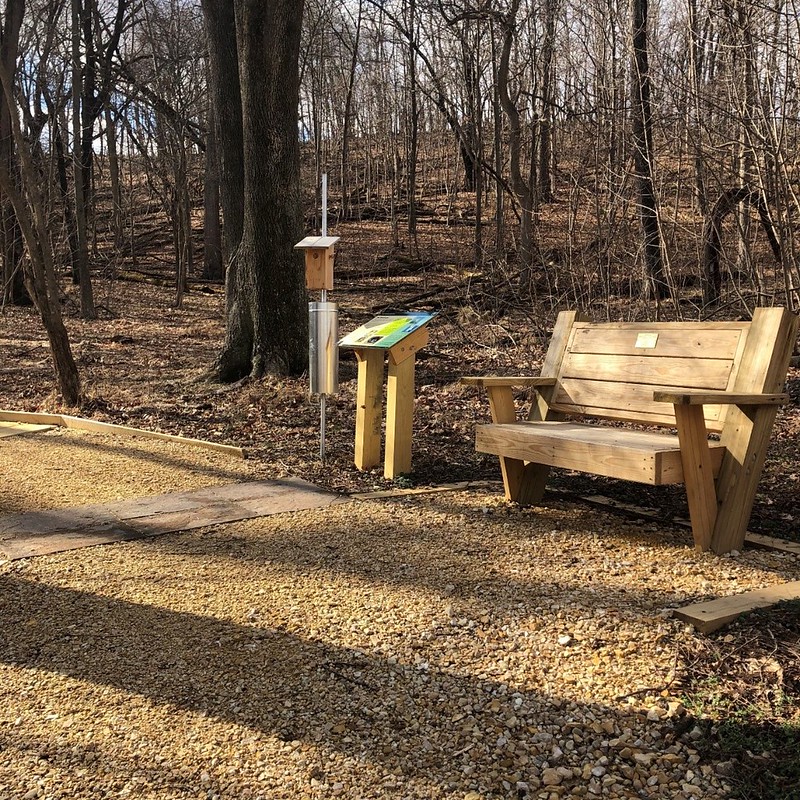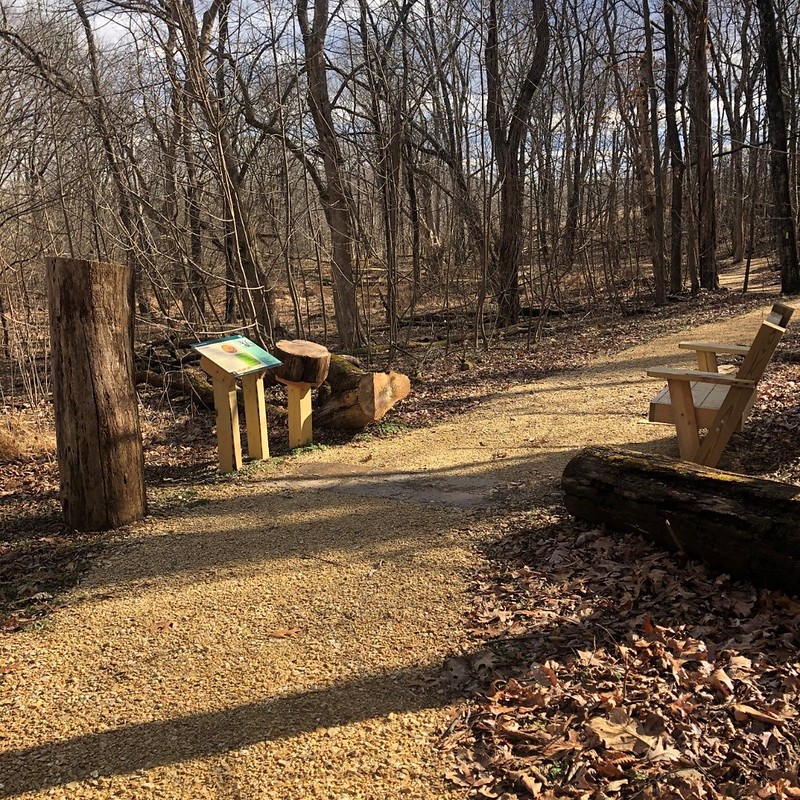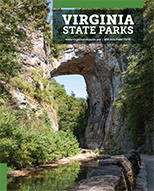Due to the expected impact of the winter storm, all Virginia State Park overnight facilities will be closed from Friday, Jan. 23 through Tuesday, Jan. 27. This decision is based on the forecast for unsafe conditions and potential power outages. For updates click here.
Read Our Blogs
Top 5 Features of the Sensory Explorers' Trail
Do you remember a special time when nature’s wonder captivated your senses? It could have been the sight of a beautiful sunrise, the sound of bird songs in the early morning, or the feeling of cool river water on a hot day. Nature holds many refreshing and inspiring experiences for us when we take the time to slow down and open our senses. This is why Sky Meadows State Park partnered with the Shenandoah Chapter of Virginia Master Naturalists and the Friends of Sky Meadows to build the Sensory Explorers’ Trail, opened in late summer 2019.
Sensory Explorers’ Trail trailhead sign
The Sensory Explorers’ Trail offers .3 miles of discovery with eight stops along the way that guide you to enjoy the sights, sounds, smells and textures of your environment. Interpretive explanations at each stop help you to gain a deep understanding of your place within the trail’s ecological, historical and geological context. Lets explore the top 5 features that make this trail truly special.
Sensory Explorers’ Audio Tour
An in-depth audio tour enhances the Sensory Explorers’ Trail experience and makes it accessible to the blind or visually impaired. Through a quick and easy process, you can download the audio tour to your smart phone and listen as you walk. Braille sign markers and stone platforms help those who are visually impaired to coordinate the audio tour with each stop of the trail.
Park visitor downloading the Sensory Explorers’ Trail Audio Tour. Photo by: Marie Majarov
The Witness Rock
One of the fascinating stops along the trail is an ancient stone over one billion years old. Covered in lava 540 million years ago, compressed, pushed to the surface and eroded, it now protrudes out of the land for all to touch, learn from and enjoy. This stop explores the events that happened throughout this stones massive lifetime, offering a unique perspective on our own history.
Park visitors exploring the Witness Rock
The Bluebird House
Get an up-close look at a bluebird house and listen to the sounds of native birds that change from season to season. This stop has a demonstration bluebird house, identical to the over ninety bluebird houses installed and monitored at Sky Meadows by the Shenandoah Chapter of Virginia Master Naturalists. As natural habitats decline for bluebirds and other cavity nesters, these bluebird houses provide important nesting spaces for these beautiful birds.
Bluebird house along the Sensory Explorers’ Trail
The Tree of Life
Wrap your arms around the trunk of a mighty fallen locust tree. This tree was one of the first to emerge in this forest, and since locust wood decays very slowly, it will still be standing decades from now. Here you can find the tree’s age by counting the rings in its wood and even get a sense of the weather patterns that it experienced in its life, based on the pattern of its rings.
Segments of a fallen Locust Tree along the Sensory Explorers’ Trail
Vernal Pool Observation Deck
Constantly changing from shallow pool in winter and spring to dry land in summer and autumn, the vernal pool provides the perfect habitat for some amphibians who spend part of life in water and part on land. The vernal pool observation deck along the trail enables you to explore this fascinating land feature up-close and even feel life-sized replicas of native amphibians.
Park visitors enjoying the vernal pool observation deck along the Sensory Explorers’ Trail. Photo by: Marie Majarov
The Sensory Explorers’ Trail gives you a chance to experience nature’s wonders in a variety of ways, opening both your senses and your understanding through sensory invitations, scientific explanations and questions for personal reflection. Each time you walk the trail you will notice something new as the natural ecosystem changes from season to season.
If you have read the article and have a question, please email nancy.heltman@dcr.virginia.gov.
Search for blogs
By Park
Categories
Cabins
Camping
Fishing
History and Culture
Other
Programs and Events
Trails
Volunteers
Water Fun
Archive
2026
2025
2024
2023
2022
2021
2020
2019
2018
2017
2016
2015
2014
2012

